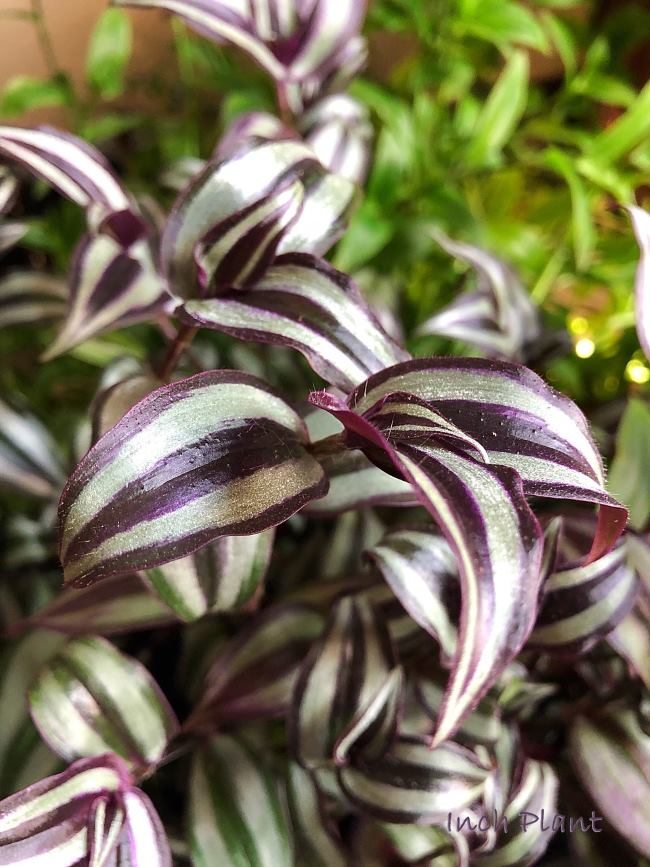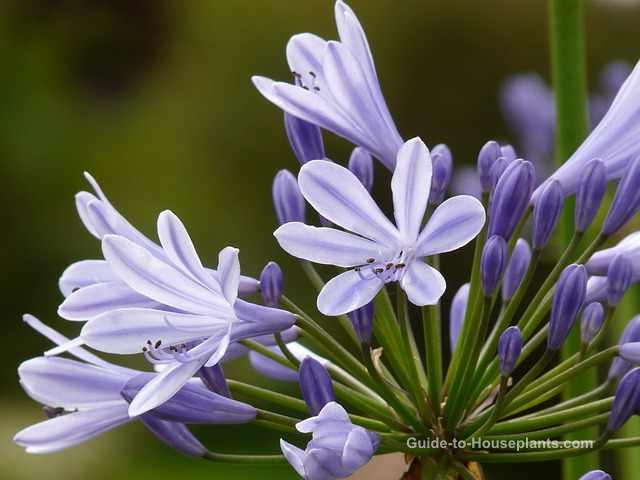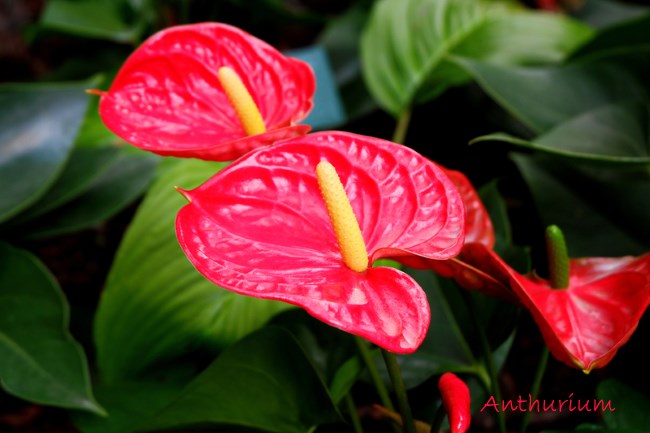Carnivorous Pitcher Plant Care
Botanical Name: Nepenthes species and hybrids
Pitcher Plant care is easy -- or difficult -- depending on the growing conditions you have available.
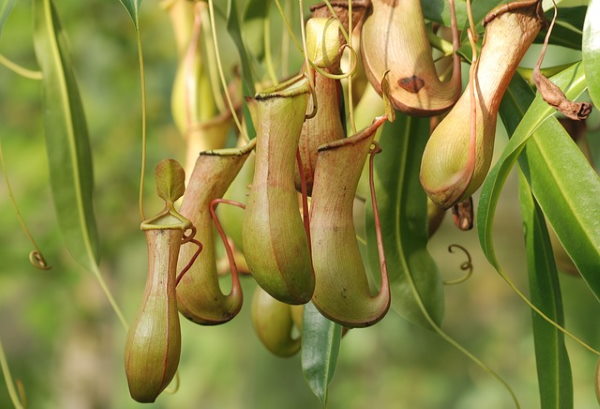 Photo Credit: Steve Bidmead
Photo Credit: Steve BidmeadYear-Round Pitcher Plant Care
Unlike many carnivorous plants that come from bogs and swamps and prefer wet, cool conditions, Nepenthes prefers tropical warmth and humidity. So unless you happen to live in the tropics, this epiphytic carnivore will need special accommodations.
A heated sunroom or greenhouse, where the air is consistently warm and humid is the best place for your pitcher plant. Just keep it shaded from direct sunlight at all times. Put it in a hanging basket to show off those unusual and fascinating pitchers.
The glossy green leaves grow to 1 ft (30 cm) long and feature a tendril at the tip. Large, pendulous pitchers commonly grow at the tips of those tendrils and are topped with a lid to keep out the rain. Depending on the species or hybrid, the pitchers may be yellow-green or mid-green and splashed or spotted with purple or red.
About those bug-eating pitchers... Because this epiphytic carnivorous plant is unable to get the nutrients it needs from soil, it has developed a way to attract, capture and ingest insects. Bugs are lured inside its pitchers with an intoxicating nectar. Once inside, the insects fall into the pepsin liquid where they drown and are digested.
Repot in spring only when needed. Handle the roots carefully because they're delicate and break easily. Plant Nepenthes in a basket with drainage holes to prevent soggy medium, which can cause root rot.
Prune it back in spring to keep Nepenthes a reasonable size. Older plants can be cut back harshly. Pruning encourages new growth so you'll get a fuller plant.
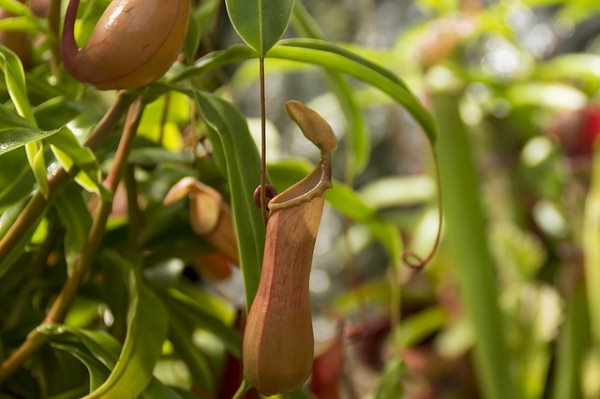 Photo Credit: Irina Rassvetnaja
Photo Credit: Irina RassvetnajaPitcher Plant Buying Tips
Some popular Malaysian pitcher plants include:
Nepenthes 'Alata', one of the most common species cultivated, has pitchers heavily marbled with red. Nepenthes x coccinea, featuring yellow and red pitchers. Nepenthes 'Superba', a vigorous grower with yellow-green pitchers splotched with dark crimson. Nepenthes x hookeriana with large, pale-green pitchers marbled with red.
Pitcher Plant Care Tips
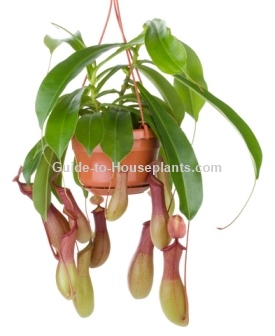
Origin: Borneo and Malaysia
Height: Climbs or trails to 10 ft (3 m)
Light: Moderate to bright light, but no direct sun.
Water: Keep soil evenly moist year-round, but not soggy which can cause root-rot. Because this plant is sensitive to chemicals in tap water, use only distilled or lime-free rain water.
Humidity: Moderate to high (50-80% relative humidity) is a must for pitcher plant care. Mist the plant every day or use a cool-mist room humidifier. Pitcher plants grow best in a heated greenhouse.
Temperature: Average to warm 75-85°F/24-29°C. It will tolerate a minimum of 65°F/18°C.
Soil: Use a nutrient-poor medium because rich potting mix will harm its roots. You can plant it in live sphagnum moss, or if that is not available, mix 1 part peat moss with 1 part perlite or horticultural sand.
Fertilizer: Don't fertilize the plant. In spring and fall, drop a few insects into the pitchers occasionally if there are none flying around. Don't use bugs that have been treated with insecticide.
Propagation: Take leaf cuttings in spring and root them in sphagnum moss. Use a heat mat. Mist every day with tepid water to keep the medium moist. Be patient -- rooting can take up to 8 weeks.
